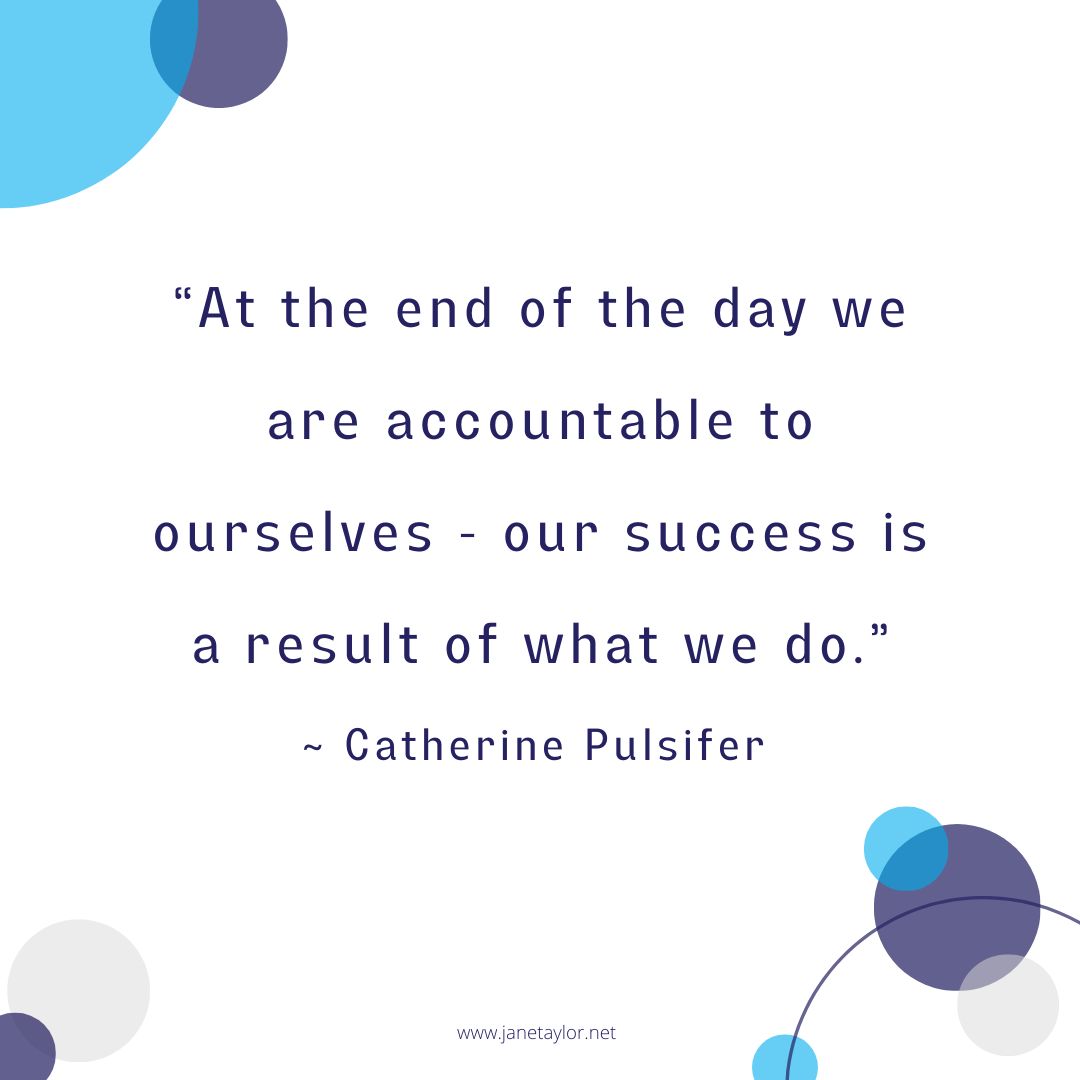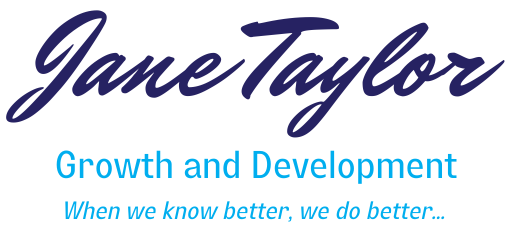What is Personal Accountability?

In many ways the following quote by Catherine Pulsifer sums up accountability – “At the end of the day we are accountable to ourselves – our success is a result of what we do”, however let’s explore it a little further.
What is Personal Accountability?
I see personal accountability is an ongoing habitual commitment to yourself and what is important to you through –
- continually choosing consciously to take ownership for your life,
- taking responsibility through choices / actions and removing the blocks (for example: faulty thinking or excuses), and
- holding yourself accountable for your results (the “good” and the “not so good or the wanted and not wanted).
Marcia Rachel who has written about accountability in the medical field indicates there are a number of different definitions of accountability and each of them involve five key ideas –
- Obligation – a duty that usually comes with consequences,
- Willingness – taking action because we want to, not because we have to,
- Intent – the purpose behind a plan or desired outcome,
- Ownership – having power or control over something, and
- Commitment – dedicating ourselves to the task or goal at hand.
Today I came across the book The 85% Solution: How Personal Accountability Guarantees Success – No Nonsense, No Excuses by Linda Galindo. In the book, Linda focuses on three similar key elements of personal accountability:
- Personal responsibility is a “before-the-fact” mind-set of personal ownership and commitment to a result (page 58),
- Self-empowerment is taking the actions – and the risks – that you need in order to ensure that you achieve the results you desire (page 147), and
- Being accountable for your results requires an “after-the-fact” mindset of being willing to answer for the outcomes resulting from your choices, behaviors, and actions (page 225).
Early in the The 85% Solution Book, Linda shares her own wake-up call to practice personal accountability:
“Once upon a time, I was the Queen of Victims, with a shiny scepter, a sparkling crown, and a plush velvet robe, walking up and down the runway of Poor Me. Life didn’t work for me. My boss was a jerk. My parents didn’t encourage me. My husband was controlling. I got divorced. I complained and whined.
One day, a good and smart friend put a stunningly quick stop to it by asking me a revealing question that stung me like a slap in the face.
“Have you ever noticed that all the bad things you complain about happened when you were in the room? Have you ever considered that you might have something to do with your own rotten luck?”
I hadn’t” (page 11).
Being personally accountable in all areas of our life can be tough going sometimes, however there are a number of benefits to choosing personal accountability.
What are the Benefits of Personal Accountability?
There are a number of benefits to personal accountability including –
- Decreased stress, increased productivity, better time usage, increased job and relationship satisfaction. As Linda says in the The 85% Solution Book, “…a lack of personal accountability is at the heart of chronic stress. It saps us of productivity. It wastes our time. It makes us less satisfied with our jobs, our relationships, and ourselves.” (page 231).
- Helping you keep focused in your work and life and know where you are up too. For example – when you know where you are up to and how much time you have, it can be easier to say yes or no to an invitation and make sure you don’t over commit yourself.
- Building trust with people. Not sure about this? Maybe think about how you react when someone keeps an appointment and is on time or when someone is late or doesn’t turn up to an appointment.
- Helping you manage and keep track of where you are up to in different areas of your work and life (i.e. your health and/or finances).
- Sharpe and Balderson (2005) also found that children who were encouraged to take personal responsibility for their actions also had more positive social interactions (i.e. healthy relationships).
Questions for Reflection…
- What does personal accountability mean to you?
- How personally accountable are you? For example – are you on time for appointments? Do you finish what you start? Do what you say you are going to do?
- Who are you accountable too in your life and work?
- What external structures can you put into place to become more personally accountable?
If you are ready to reclaim your courage and take the next step towards freedom and opening your heart, why not join our Toolkit or maybe even our online accountability circle?
References –
Galindo, L. (2009). The 85% Solution: How Personal Accountability Guarantees Success – No Nonsense, No Excuses.USA: Jossey-Bass.
Marcia, R. (2012). Accountability: A concept worth revisiting. American Nurse Today, v7 n1 March 2012.
Sharpe, T., and Balderson, D. (2005). The Effects of Personal Accountability and Personal Responsibility Instruction on Select Off-Task and Positive Social Behaviors. Journal of Teaching in Physical Education, v24 n1 Jan 2005, 66-87.
